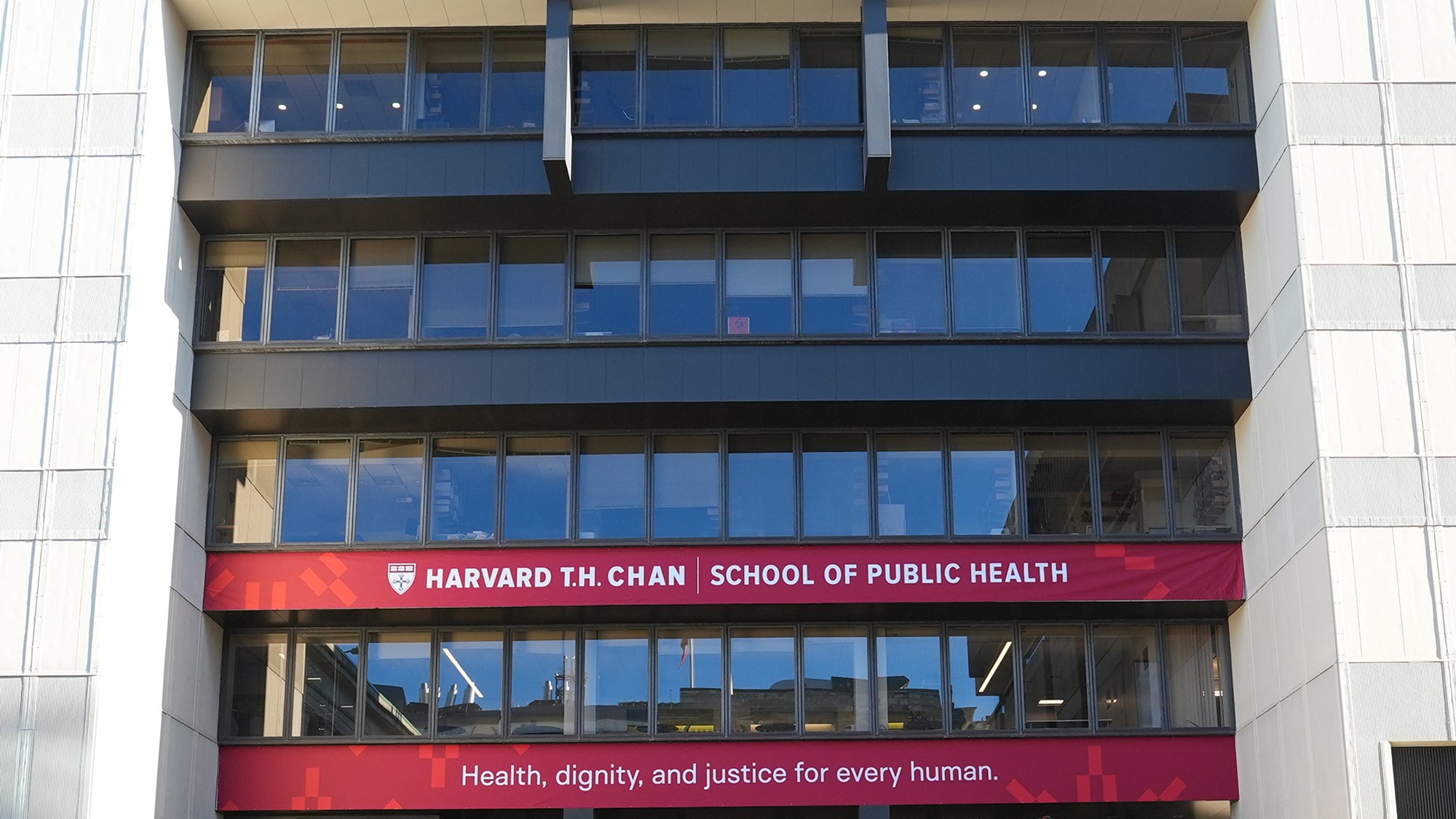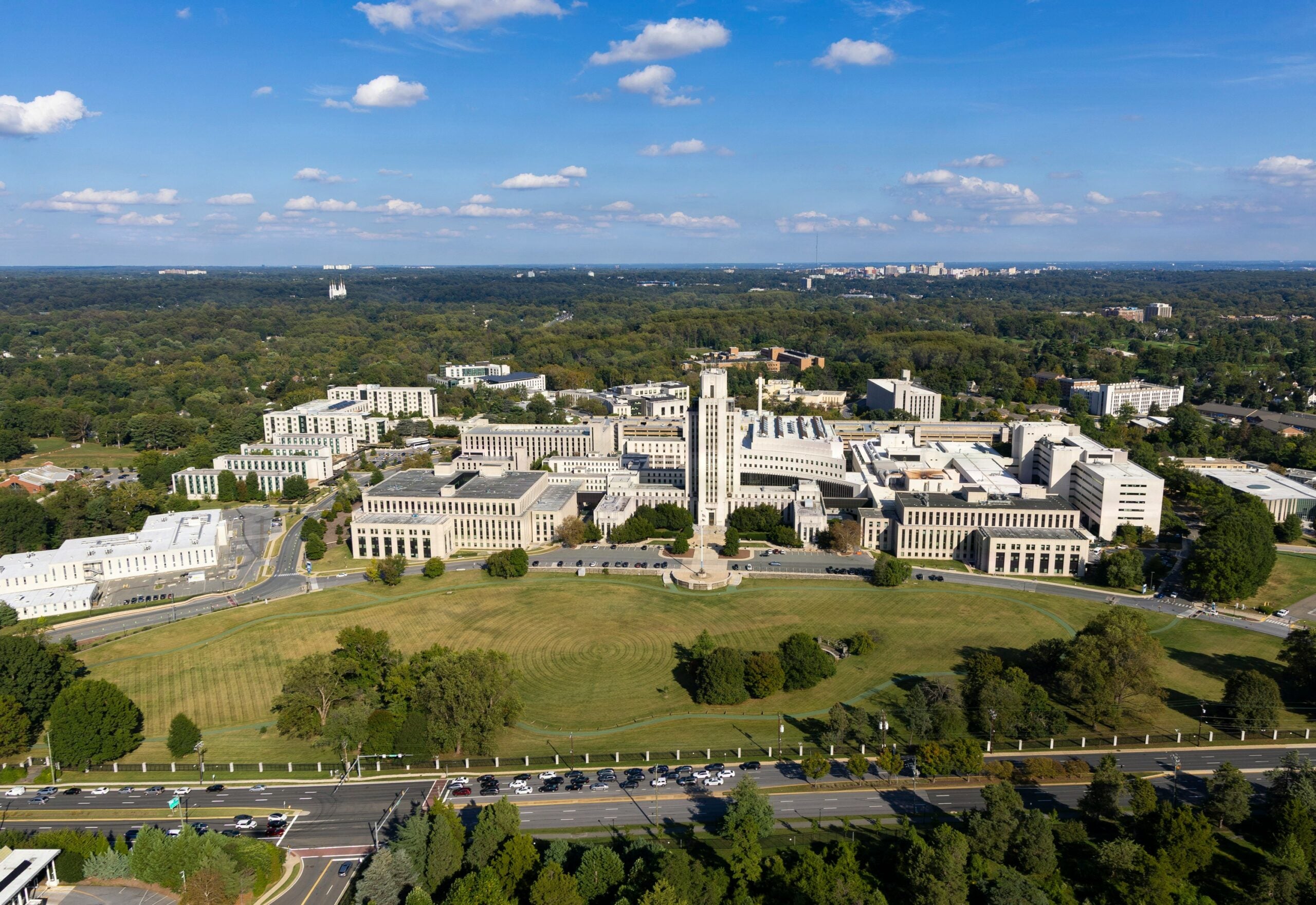‘The questions we’re addressing are not liberal or conservative’: Harvard researchers speak out on funding cuts

The federal government’s defunding of health research is putting human lives on the line, scientists across Harvard T.H. Chan School of Public Health say.
Five of these scientists spoke about their research—which they’ve had to abruptly downsize or end altogether after having their federal grants terminated—and its lost potential in a May 30 article in The Times of London.
Sarah Fortune, John LaPorte Given Professor of Immunology and Infectious Diseases and chair of the Department of Immunology and Infectious Diseases, was working with fellow scientists across 13 institutions and 21 labs to help prevent and treat tuberculosis, the world’s top infectious disease killer. With the remainder of her $60 million grant terminated, the research has ground to a halt.
“Our project was awesome. It was part of the largest investment the National Institutes of Health had ever made in TB. It was honestly the most satisfying science I’ve ever been a part of because it was really working,” Fortune told the Times.
Now, she said, “it’s as if those studies never happened.”
Support Harvard Chan School
Every gift contributes to our mission of building a world where everyone can thrive. To learn more about how you can support the School, please contact giving@hsph.harvard.edu.
Kari Nadeau, John Rock Professor of Climate and Population Studies and chair of the Department of Environmental Health, was working to discover how to prevent fatal food allergies through a nationwide clinical trial of 800 infants and toddlers. She noted that ending the clinical trial’s funding two years before its scheduled end is “unethical.”
“That means 800 infants were put at risk,” she said. “These children have no alternative treatment. They are cancelling clinical trials that could have been used to register new drugs for the whole population.”
Mary Rice, Mark and Catherine Winkler Associate Professor of Environmental Respiratory Health and director of the Center for Climate Health and the Global Environment (C-CHANGE), was six months away from completing her research into the benefits of air purifiers for former smokers living with chronic obstructive pulmonary disease (COPD).
“It’s an incredible waste of taxpayer dollars to interrupt research,” she said. “For my trial, more than $2 million has been spent on this incredibly complex study. It’s so incredibly wasteful.”
Marc Weisskopf, Cecil K. and Philip Drinker Professor of Environmental Epidemiology and Physiology, was decades into research on why military veterans face twice the risk of developing ALS as the population as a whole. The research had potential to help veterans and the general population alike, generating new knowledge about the fatal disease for which the cause and cure is unknown. With his funding cancelled, Weisskopf has been searching for ways to scale down the research without ending it entirely—a stop-gap strategy with little long-term feasibility.
His research, and that of his colleagues, “is not political in any way,” he said. “The questions we’re addressing are not liberal or conservative. It doesn’t matter what side of the political spectrum you’re on.”
John Quackenbush, Henry Pickering Walcott Professor of Computational Biology and Bioinformatics, added to Weisskopf’s sentiments when discussing his defunded research, which seeks to identify how cancer develops and why it varies between genders.
“We hear a lot about making America healthy again,” he said. “If you want to keep the country healthy, the way you do it is not by destroying the enterprises that have been so successful in keeping us the world leaders [in medical research].”
Quackenbush added that the Trump administration’s decision to cut funds across Harvard University as a response to antisemitism on campus is nonsensical.
“This claim of antisemitism is being used as a political tool,” he said. “If I live in a big house and someone in my family says something hateful, the way to address it is to meet with them, try to understand the cause and correct their actions. It’s not to burn down the house. And that’s essentially what we’re seeing happen. The house is being burnt down.”
Read The Times of London article
We are Harvard researchers. Trump’s cuts are endangering lives


